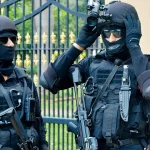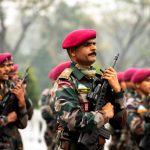The role of a Medical Officer in the Indian Army embodies a unique blend of medical expertise, military discipline, and a commitment to serving one’s country. As the backbone of healthcare for army personnel, these officers play a crucial role in ensuring the medical readiness and well-being of soldiers. In this comprehensive article, we will explore the educational qualifications, eligibility criteria, salary, benefits, career pathways, and other vital aspects related to becoming an Indian Army Medical Officer.
Historical Context
The inception of a structured medical service in the Indian Army dates back to the British colonial period, where military medical officers were primarily responsible for the health of soldiers in the British Indian Army. Since then, the medical corps have evolved significantly, with an increasing emphasis on not just treating injuries but also on preventive care, health education, and the overall wellness of soldiers. The Indian Army now boasts a highly professional medical setup, providing comprehensive medical services to soldiers, their families, and veterans. Through the ages, the role of a Medical Officer has adapted to the changing dynamics of warfare, technology, and civilian healthcare standards, reflecting the growing importance of military medicine.
Educational Qualifications
To aspire to become an Indian Army Medical Officer, candidates must meet certain educational criteria. These standards ensure that only the most qualified individuals are entrusted with the critical role of providing medical care in challenging environments.
MBBS or BDS Degree
Candidates are required to possess an MBBS (Bachelor of Medicine, Bachelor of Surgery) or BDS (Bachelor of Dental Surgery) degree from a recognized institution. This qualification must be acknowledged by the National Medical Commission (NMC) or relevant state medical councils. The approval from the NMC is a testament to the quality and appropriateness of the education received.
Importance of a Recognized Degree:
Having a degree from a recognized institution ensures that the candidates are well-versed in the fundamental medical knowledge and practical skills essential for their role. This also prevents any lapses in understanding the intricacies of military medical requirements.
NEET Score
Admission to the Armed Forces Medical College (AFMC) necessitates passing the National Eligibility cum Entrance Test (NEET). This examination assesses the candidates’ proficiency and readiness for medical schooling, ensuring that only qualified students proceed to learn the art of medicine.
Considerations for Candidates:
- Preparation for NEET is critical, as it opens doors to a prestigious medical education and a fulfilling career in military medicine.
Medical Registration
Post-graduation, candidates must register with the NMC or state medical councils. This registration process grants them the official certification to practice medicine in India.
Eligibility Criteria
To qualify as an Indian Army Medical Officer, candidates must meet specific eligibility criteria, ensuring that they are suited for the demanding yet rewarding environment of military service.
Citizenship
Only Indian citizens are eligible to apply for the position of Army Medical Officer. This requirement underscores the commitment to serving one’s nation in uniform.
Age Limit
The age criteria are divided based on the mode of entry:
- Short Service Commission (SSC): Candidates should be 21 to 35 years old for MBBS graduates, up to 45 years for those with postgraduate qualifications.
- Direct Entry (AFMC): Those seeking direct entry must be between 17 to 22 years old.
Understanding these age limits is vital for prospective candidates to plan their applications accordingly.
Physical Fitness
Candidates must undergo a comprehensive medical examination to ascertain that they meet the physical fitness standards set forth by the Indian Army. A high level of fitness is crucial, as Medical Officers need to maintain operational readiness and, at times, may need to be part of medical aid in combat or harsh field conditions.
Salary and Benefits
The compensation package for Indian Army Medical Officers is highly attractive, reflecting the rigorous demands of the job and the skilled expertise required.
Basic Salary
The basic salary for an Army Medical Officer stands at approximately ₹61,300 per month. This figure represents the foundational pay and does not include additional benefits and allowances.
Military Service Pay
In addition to the basic salary, Medical Officers receive a Military Service Pay of ₹15,500 per month, acknowledging their unique role and the operational conditions they might face.
Allowances
A range of allowances complements the salary:
- House Rent Allowance: Provides financial support for housing.
- Transport Allowance: Ranges from ₹3,600 to ₹7,200 per month, depending on the officer’s location and other factors.
- Dress Allowance: Ensures that officers can maintain their uniforms and professional appearance.
- Dearness Allowance: Adjusted according to government regulations.
Total Compensation
Considering the basic pay, military service pay, and allowances, the total annual compensation for an Indian Army Medical Officer can range from approximately ₹8 lakh to ₹16.5 lakh. This competitive salary reflects the need to attract and retain qualified medical professionals within the military.
Free Medical Facilities
Army Medical Officers and their dependents also enjoy free medical facilities, which represents a significant benefit. Access to high-quality healthcare is a critical component of military service, relieving officers of the costs associated with healthcare for themselves and their families.
Career Pathways
The career progression for Indian Army Medical Officers offers a range of pathways, ensuring not only professional development but also opportunities for specialization and leadership roles.
Permanent Commission (PC)
Candidates who gain admission through the AFMC are awarded a Permanent Commission after completing their MBBS program. A Permanent Commission ensures a long-term commitment to service, allowing Medical Officers to rise through the ranks and take on significant leadership responsibilities.
Short Service Commission (SSC)
MBBS or BDS graduates can also opt for a Short Service Commission, with an initial commitment of ten years. This period can be extended by an additional four years. Officers can transition to a Permanent Commission after fulfilling two years of service, provided they do so before reaching 9.5 years of service.
Advantages of SSC:
- Flexibility in service duration.
- Opportunity to evaluate a career in military medicine before making a longer-term commitment.
Ranks and Promotions
Starting as Captains, Medical Officers have the potential to rise to higher ranks as their service continues.
Initial Rank
Upon joining the Indian Army, Medical Officers typically begin their careers as Captains.
Promotion Pathways
Promotions follow a structured path:
- For Permanent Commissioners: Opportunities for rapid advancement are available, leading to significant positions within the medical corps.
- For Short Service Commissioners: Career growth is somewhat limited compared to Permanent Officers, though it still provides invaluable military experience.
Statistical Data and Research Insights
Considerable data underscores the importance of Medical Officers within the Indian Army. According to recent reports, the Indian Army’s medical services provide healthcare to approximately 14 lakh individuals, including active personnel, veterans, and their families.
- Healthcare Infrastructure: The Indian Army has established numerous hospitals and primary health care units across the country and in operational areas, illustrating the scale of medical services.
Comparative Analysis
When comparing the role and compensation of Indian Army Medical Officers with their civilian counterparts, several differences emerge:
- Job Security: Military roles offer unparalleled job security and benefits, making them highly desirable.
- Work Environment: Military healthcare, though rigorous, often provides unique experiences that civilian healthcare settings may not offer.
- Compensation: While salaries in private healthcare can be high, the steady progression and allowances in the Army make the overall compensation package compelling.
Challenges and Solutions
While the role of an Indian Army Medical Officer is fulfilling, it is not without challenges. Key issues include:
- Operational Stress: Medical Officers often work in high-pressure environments, handling emergency medical situations in combat zones.
- Work-Life Balance: The demanding nature of military service can impede personal time and family life.
Potential Solutions:
- Support Systems: Establishing robust mental health support and wellness programs to address the pressures faced by medical staff.
- Flexibility in Assignments: Providing options for varied assignments that consider the officer’s personal circumstances and wellness.
Future Trends and Predictions
The landscape of military medicine is continuously evolving, with trends that may impact Indian Army Medical Officers in the future:
- Technological Advancements: The integration of telemedicine and advanced diagnostic tools is expected to enhance medical services, ensuring timely treatment.
- Focus on Mental Health: With growing awareness, the Indian Army is likely to place greater emphasis on mental health services for its personnel.
- Increased Training Opportunities: Continuous professional development and specialized training programs will further enhance the capability of Medical Officers.
Conclusion
Becoming an Indian Army Medical Officer is not only a prestigious career choice but also a profound commitment to serving one’s country while making significant contributions to the health and well-being of soldiers and their families. With competitive salaries, benefits, and varied career pathways, this role combines medical practice with military discipline, fostering an environment where professionals can thrive both in service and personal growth.
For those considering this path, a thorough understanding of qualifications, responsibilities, and the rewards of serving as a Medical Officer in the Indian Army is essential. As the medical landscape within the military continues to transform, aspiring candidates can look forward to an enriching career filled with challenges, responsibilities, and opportunities to serve and protect.










